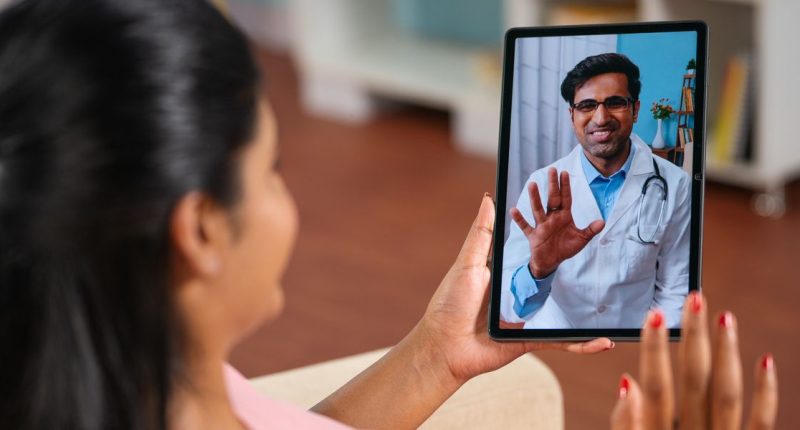Telemedicine can even out inequalities when it comes to access to endocrinology care for people with type 2 diabetes and heart disease, research has showed.
It benefits patients who face barriers to in-person care, including those living in rural areas or areas with low socioeconomic status.
People with both type 2 diabetes and cardiovascular disease are more at risk of complications arising from diabetes, so they should receive specialist care from an endocrinologist.
- People with type 2 diabetes show improvement following oral semaglutide treatment
- Stem cell therapy cures man with type 2 diabetes, Chinese study claims
- Men at higher risk of type 2 diabetes due to pronounced insulin resistance of adipose tissue
Factors which may limit access to this level of care include a shortage of endocrinologists along with patients’ lack of transportation, mobility challenges, and distance to the nearest endocrinology clinic.
This is where telemedicine could play a role in improving patient access to these services.
A team of researchers examined data from just over 9,500 adults with type 2 diabetes and cardiovascular disease, comparing two periods: pre-telemedicine (January 1, 2018 to March 15, 2020) and post-telemedicine (March 16, 2020 to June 30, 2022).
Of these, 1,725 patients received endocrinology care.
Researchers found that prior to telemedicine, the patients who were more likely to receive endocrinology care were those who lived closer to an endocrinology clinic and in neighbourhoods with higher socioeconomic status. They were also more likely to be younger, non-white, with other health conditions.
- Study shows outdoor physical activity can combat type 2 diabetes and depression
- Weight loss not common in adults with newly diagnosed type 2 diabetes
- Lifestyle changes are common among those with type 2 diabetes
Study co-author Margaret Zupa, from the University of Pittsburgh School of Medicine, said: “After widespread use of telemedicine, travel distance to endocrinology clinic, race, and neighbourhood socioeconomic status had less impact on endocrinology care access compared to the pre-telemedicine period, while younger age had a stronger relationship with receipt of this care.
“The findings suggest telemedicine can help make access to endocrinology care more equitable for patients who face barriers to in-person care, such as those living in rural areas or neighbourhoods with low socioeconomic status.”







